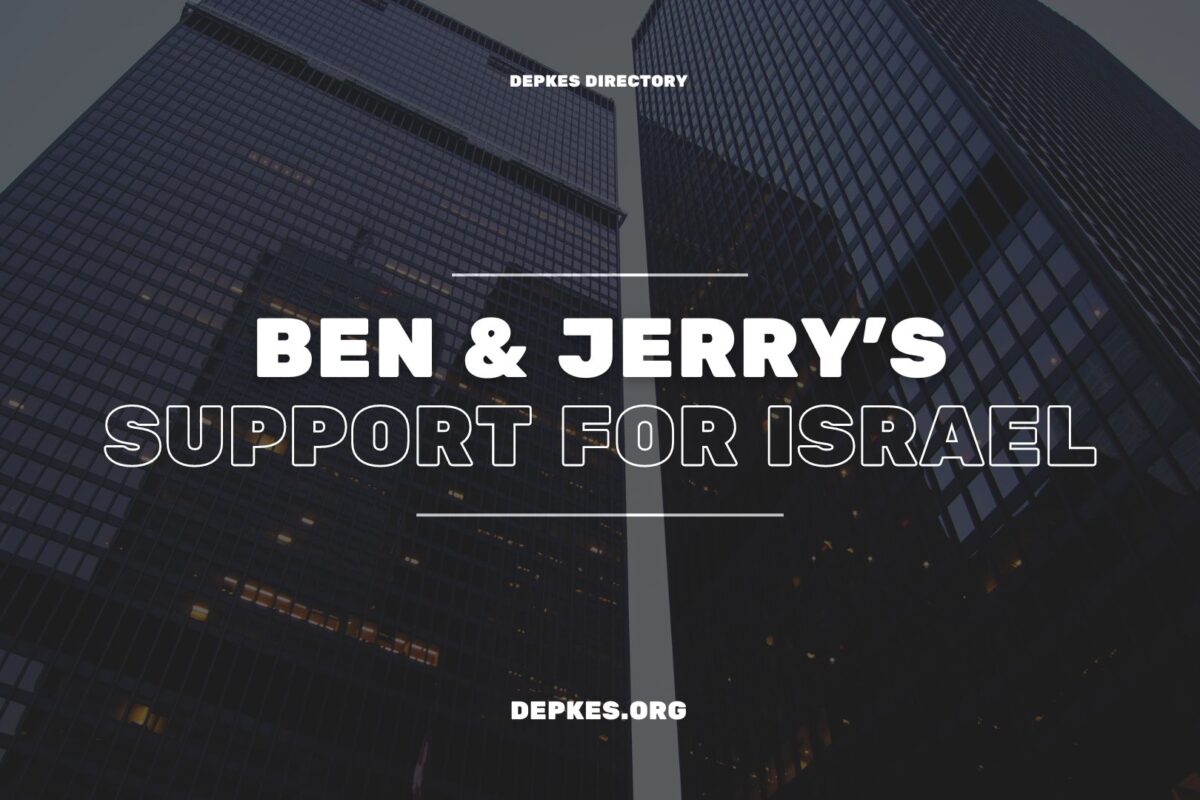Ben & Jerry’s, renowned for its flavorful ice creams and social activism, found itself in controversy when the company decided to halt its sales in Israel. This decision raised questions about the brand’s stance on the Israeli-Palestinian conflict and the subsequent actions taken by its parent company, Unilever, leading to discussions about Ben & Jerry’s support for or distancing from Israel.

Also See: BNP Paribas – Israel Support: What You Need to Know
Daftar isi:
Corporate Connections and Concerns
Ben & Jerry’s, a beloved ice cream brand, operates under the ownership of Unilever, a multinational corporation. The controversy arose when Ben & Jerry’s made the decision to cease selling its products in Israel due to concerns about the Israeli occupation of Palestinian territories. However, to continue the brand’s presence in Israel, Unilever sold off the distribution rights in the region to Avi Zinger, effectively bypassing Ben & Jerry’s choice and keeping the brand available in Israel under a different distribution setup.
Ben & Jerry’s decision to halt sales in Israel and Unilever’s subsequent sale of Israeli distribution rights to Avi Zinger to maintain the brand’s presence in the country has ignited debates about the brand’s position on the Israeli-Palestinian conflict and the complexities of corporate maneuvering in sensitive geopolitical contexts.
Alternative Products
For consumers seeking alternatives to Ben & Jerry’s ice cream potentially uninvolved in controversies related to geopolitical conflicts, considering supermarket own-brand products might be an option. Many supermarkets offer their own range of ice creams, providing similar flavors and options without potential associations with companies embroiled in sensitive geopolitical issues.

Explore More: The Boeing – Israel Connection Unraveled
The association between Ben & Jerry’s, Unilever, and the decision to stop sales in Israel followed by the sale of distribution rights has brought ethical considerations to the forefront. As consumers increasingly value ethical practices and transparency in their purchases, alternatives such as supermarket own-brand products may offer avenues for individuals seeking to distance themselves from controversies related to geopolitical conflicts.
The case of Ben & Jerry’s underscores the complex intersection of business decisions, social responsibility, and the impact of geopolitical issues on consumer choices and perceptions in today’s conscientious marketplace.
- Investigating Ferrero Rocher’s Support and Investment Stance on Israel
Does Ferrero Rocher support the Israeli Occupation of Palestine? The scrutiny surrounding the company’s supposed support is growing, particularly for…
- Exploring ASDA’s Interest and Support in Israel
Does ASDA support Israel by selling products sourced from Israeli settlements in Palestine? This raises concerns over human rights violations…
- Does Hershey Support Israel? A Deep Dive
Amid allegations of ties to Israel and Palestinian territories, Hershey faces controversy. Let’s delve into the upheaval, analyzing accusations, investigating…
- Luxury Companies Supporting Israel: A Deep Dive into Their Possible Connections
Are luxury companies, such as LVMH with its notable brands Hublot, TAG Heuer, and Tiffany & Co, supporting Israeli companies?…

